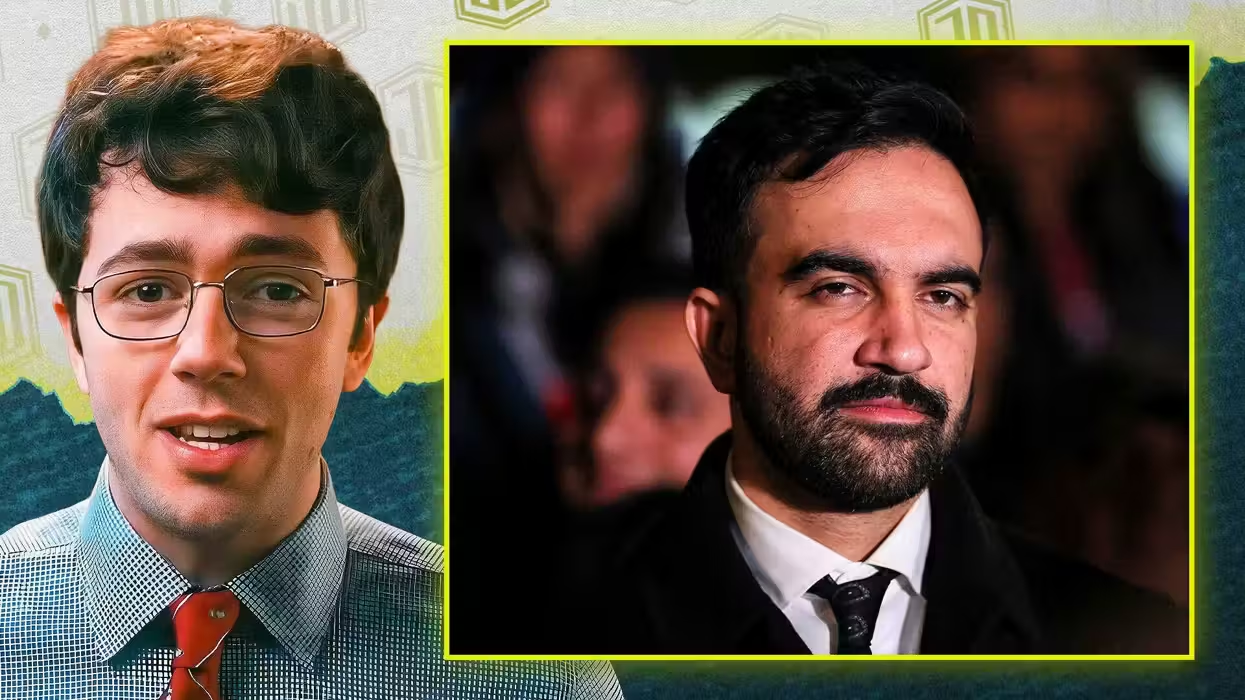
© 2025 Blaze Media LLC. All rights reserved.
Unlikely That Norwegian Terrorist Will Be Declared Legally Insane
July 31, 2011
It's unlikely that the extremist who admitted killing dozens in Norway last week will be declared legally insane because he appears to have been in control of his actions, the head of the panel that will review his psychiatric evaluation told The Associated Press.
The decision on Anders Behring Breivik's mental state will determine whether he can be held criminally liable and punished with a prison sentence or sent to a psychiatric ward for treatment.
The July 22 attacks were so carefully planned and executed that it would be difficult to argue they were the work of a delusional madman, said Dr. Tarjei Rygnestad, who heads the Norwegian Board of Forensic Medicine.
In Norway, an insanity defense requires that a defendant be in a state of psychosis while committing the crime with which he or she is charged. That means the defendant has lost contact with reality to the point that he's no longer in control of his own actions.
"It's not very likely he was psychotic," Rygnestad told the AP.
The forensic board must review and approve the examination by two court-appointed psychiatrists before the report goes to the judge hearing the case. The judge will then decide whether Breivik can be held criminally liable.
Rygnestad told the AP a psychotic person can only perform simple tasks. Even driving from downtown Oslo to the lake northwest of the capital, where Breivik opened fire at a political youth camp, would be too complicated.
"If you have voices in your head telling you to do this and that, it will disturb everything, and driving a car is very complex," Rygnestad said.
"How he prepared" for the rampage - meticulously acquiring the materials and skills he needed to carry out his attack while maintaining silence to avoid detection - argues against psychosis, Rygnestad added.
By his own account, the 32-year-old Norwegian spent years plotting the attack. On July 22, he set off a car bomb that killed eight people in downtown Oslo's government district, then drove north to a youth camp on Utoya, a small lake island set amid a quiet countryside of pines and spruces.
There, he spent 90 minutes executing 69 people, mostly teenage members of the youth wing of Norway's governing Labor Party.
In a 1,500-page manifesto released just before the attacks, Breivik describes his two-pronged attack as the opening salvos of a new crusade that, by 2083, will purge Europe of Muslims and the "cultural Marxists" he complains are letting them have the run of the continent.
Breivik, who is being held pending trial, has admitted to the facts of the case, but denies criminal guilt because he believes the massacre was necessary to save Norway and Europe, his defense attorney Geir Lippestad said, hinting at a possible insanity defense.
"This whole case has indicated that he's insane," Lippestad told reporters last week.
Lippestad did not return calls over the weekend seeking reaction to Rygnestad's comments.
On Sunday, a Twitter account under Breivik's name appeared to be hacked into.
"This twitter account has been seized by (hashtag) NORIA" and "this twitter account will be deleted soon," two of the postings said.
"We want Anders to be forgotten. Labels like "monster", or "maniac" won't do either. Media should call him pathetic; a nothing. (hashtag) Forgethim."
Previously, the account had only one tweet, on July 17, loosely citing English philosopher John Stuart Mill: "One person with a belief is equal to the force of 100,000 who have only interests."
If tried and convicted of terrorism, Breivik will face up to 21 years in prison or an alternative custody arrangement that could keep him behind bars indefinitely.
If he is declared insane, a judge could order him institutionalized in a psychiatric ward only so long as he is deemed mentally ill, though Norway does have provisions for keeping dangerous, but no longer insane, people in custody even after they're discharged from the hospital.
Judging by his manifesto, it's not likely that Breivik would want to pursue an insanity defense if it were up to him. He anticipates that, after his attack, he will be labeled "psycho," "maniac" and "insane."
"I have an extremely strong psyche (stronger than anyone I have ever known)," he wrote.
Two Norwegian psychiatrists selected by the court this week are set to complete their evaluation of Breivik by Nov. 1.
To prove insanity, most American courts require that the defendant be possessed by an "irresistible impulse" to commit the alleged crime - a mental illness that prevented the defendant from controlling his or her actions.
Timothy McVeigh killed 168 people when he set off a car bomb, similar in many ways to Breivik's, that tore through the Alfred P. Murrah Federal Building in Oklahoma City in 1995.
"Timothy thought he was starting a revolution, too," said Dr. Seymour L. Halleck, a forensic psychiatrist who examined McVeigh to determine whether he was competent to stand trial.
To carry out such an attack, "you need a certain kind of competency and determination - and some need to make a mark on the world," Halleck said. "There was nothing we found psychotic about Timothy McVeigh."
---
The Associated Press contributed to this article.
Want to leave a tip?
We answer to you. Help keep our content free of advertisers and big tech censorship by leaving a tip today.
Want to join the conversation?
Already a subscriber?
more stories
Sign up for the Blaze newsletter
By signing up, you agree to our Privacy Policy and Terms of Use, and agree to receive content that may sometimes include advertisements. You may opt out at any time.
Related Content
© 2025 Blaze Media LLC. All rights reserved.
Get the stories that matter most delivered directly to your inbox.
By signing up, you agree to our Privacy Policy and Terms of Use, and agree to receive content that may sometimes include advertisements. You may opt out at any time.







